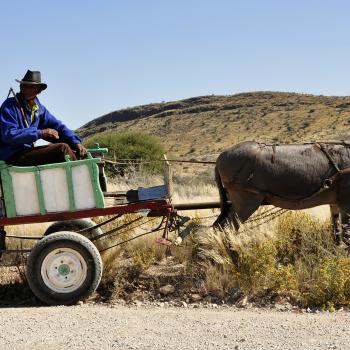Love Comes Softly, Chapters 24-25
In case you lost count, it’s March now; baby Clare was born in mid-February. Clark is still busy cutting logs for the planned addition to their house.
Marty’s days were full, too, doing the usual housework and caring for the new baby and Missie.
Housework.
I have a whole lecture I could give on the transition from the colonial “goodwife” to the 1950s “housewife.” Marty is still on the first side of that transition. She wouldn’t be spending her time doing “housework” in the way we understand that term today.
With the increased laundry needs, she found it difficult to get the clothes dry between one washing and the next.
I’m curious about this, too. One is clearly referring to the washing for the baby, and maybe that’s something one would do on a more daily basis. But back then, washing was usually done weekly, because it was a lot of work to haul all of that water and heat it.
But enough with the details. The main thrust of this chapter is that Marty is becoming more comfortable with Clark, and as even come to enjoy her evenings with him.
Marty found it increasingly comfortable to talk with Clark. In fact, she looked forward to relating the events of the day and reporting on Missie’s conversations with her.
The two are once again engaged in a joint project of sorts. Clark is making a bed for Missie, and Marty is piecing a quilt for it.
Marty enjoyed watching the bed take shape. She noticed the few simple tools Clark worked with responded well to his capable hands.
For some reason, I can’t read that without marking it sexual.
Marty and Clark talk about the news from town, the coyotes who have come down from the hills in search of food, much to the dog’s consternation, plans for spring painting and the new bedroom addition, and Missie’s antics with Clare.
It wasn’t any particular conversation or subject, but they probably were discovering deeper things about each other without actually being aware of the fact.
Probably.
One evening as Marty quilted and Clark sanded the headboard for the bed, their talk turned to the Scripture passage he had read aloud at breakfast that morning. Having no background in such things, Marty found that a lot of the truths she heard from the Bible were difficult to understand.
Okay. Pet peeve time.
Fundamentalist Christians (and there is a lot of overlap here with evangelicals in general) tend to argue that the Bible can be taken at face value, as it is written, without needing to analyze the original language or culture or engage in any sort of Biblical criticism.
Key to this is the argument that the Bible is de facto clear about things—that you don’t need all of those extra things to be able to understand what it says. But there’s another piece to this, and that is that the Holy Spirit helps believers interpret and understand scripture. This is one reason unbelievers can read the Bible and fail to understand it.
But which is it? Is the Bible straightforward and easy for the reader to understand? Or is it such that the reader need the guidance of the Holy Spirit to understand it?
Either way, the latter is what seems to be going on here—Clark is guided by the Holy Spirit while Marty is not. This means that Clark is able to understand the scripture he reads, while Marty has questions and needs help understanding it.
Over time Clark had explained about the premises to the Jewish people of a Messiah who would come. But their perception of His purpose in coming was far different from what He actually came to accomplish. They wanted freedom from their oppressors; He came to give freedom from self and sin. They wanted to be part of a great earthly kingdom, but His kingdom was a heavenly one.
So much to dissect here. This is what I was taught growing up, but I’m having trouble reading it now without seeing it as antisemitic. Christians not only lay claim to the Jewish scriptures, they also claim a monopoly on interpreting and understanding them.
I’m reminded of a time, when I was probably around twelve, when we had an international student from Saudi Arabia at our house. The board game we were playing fell apart when my dad and the international student began arguing about the Trinity.
The international student insisted that Christians believe in three gods. My dad insisted that that was not the case, that Christians believe in one God. My dad was upset partly because he was trying and failing to explain something that was important to him, but also I think because this international student, who did not share my dad’s religion, was telling my dad what his religion taught, and getting it wrong.
This is in some ways akin to what Christians do every time they say Jews missed the Messiah—although not at all on the same level. Christians claim to have a better handle on Judaism than Jews themselves do—and not just on one small doctrinal point. And when you think about that, that’s kind of gross.
Also? This whole bit about how Jesus didn’t come to bring freedom from oppressors, but instead to bring freedom from self and sin? I don’t like that bit. I don’t like it because this logic was used to keep the slaves in chains in the antebellum U.S. I don’t like it because it was used to justify criticism of the civil rights movement. I don’t like it because it is used to oppress and to justify oppression. Because if it’s the next world that matters and not this one, isn’t it more important to convert people than to end oppression?
Marty has a question, though.
“Do ya really think thet God, who runs the whole world like, be knowin’ you?” she asked forthrightly.
“I’m right sure thet He do,” Clark responded simply.
“An’ how can ya be so sure?”
Clark looked thoughtfully at the Book placed on the shelf near the table. “I believe the Bible, and it tells me thet He does. And because He answers my prayers.”
“Ya mean by givin’ ya whatever ya ask fer?”
Clark thought a minute, then shook his head. “No, not thet. Oft times He jest helps me to git by without what I asked for.”
Marty shook her head. “Thet seems ta be a strange idea.”
It goes on like this. And yes, the accent is jarring.
“What about iffen ya lose something thet ya already had an’ had sorta set her mind on?”
He didn’t hesitate. “Ya mean like Clem or Ellen?”
Marty nodded slowly.
“He don’t take away the hurt, but He sure do share it with ya.”
“Wisht I woulda had me someone to share mine with.”
“He was there, an’ I’m thinkin’ thet He helped ya more than ya was aware.”
“But I didn’t really know to ask Him to.”
“I did.”
That right there? That’s basically the pinnacle of romantic evangelical heart melting.
This sort of biblical exposition works really well for Oke. Marty never really pushes back on Clark during these discussions; she just asks questions and listens to his answers. This framework lets Oke outline and exposit on Christian doctrine and beliefs through her characters’ dialogue.
That’s the end of that chapter, but I’m going to keep going. This next chapter has a lot more action in it. Namely, the barn burns down.
Oh! But first! When Clark went to town, Mrs. McDonald sent a “small parcel” back with him for the baby.
Marty opened it and found another small bib.
“I do declare,” she laughed. Thet boy sure be well set up fer bibs.”
This made me wonder what sort of gifts people usually gave babies, circa the 1860s or so—and whether babies during that period wore bibs as a distinct item of clothing. I found this, which wasn’t all that helpful, and not much else. I’m still curious!
One night, Clark shakes Marty awake and declares:
“The barn be ablaze. Ya jest stay put. I’m goin’ fer the stock.”
Marty is groggy and confused, and by the time she wakes up sufficiently to realize ash’s going on, he’s gone. She runs to the window and looks outside. The barn roof is on fire, and Clark as thrown open the doors and is walking in against the billowing smoke.
Marty is horrified. She is terrified. She stands at the window and watches as the three horses run out of the barn, one at a time, rearing and pawing the air. Then come the three milk cows, one after another. By this time, the walls of the barn were engulfed in flame. Finally, as Marty waits in agony, Clark follows the animals out the door, a wet towel over his head and face. He leans against the fence for support, but he’s okay.
Somehow the long night blurred together from then on. Marty simply couldn’t take it all in. Clark was safe, but the barn was gone. Neighbor men, with water and snow, seemed to be everywhere, now fighting to save the other outbuildings.
There are women there too—although Marty never identifies them—helping the men and making sandwiches and coffee, handing Clare to Marty to nurse as she sits in shock.
I’m curious again. How did people find out about this kind of thing, to come help? This is one of Clark and Marty’s limitations—with neither half-grown children nor hired help, they have no one to send for help in a situation like this. Just how close by do these neighbors live exactly? Were they close enough to see the fire? And even if they were, how did they notice it, coming in the middle of the night while no one is sleeping?
It must be those magic phones Clark has in the barn. Oh, sorry, had.
When morning came, the barn lay in smoldering ruins, but the sheds had been saved.
Tired, smoky faces gathered around hastily made campfire in the yard for the coffee and sandwiches. Their clothes and boots were ice crusted, their hands cupped around mugs for warmth. They talked in hushed tones. Losing one’s barn and feed, with winter still in full swing, was a great loss, and each one knew it only too well.
Eventually the men quietly gathered their women, anxious to be home and out of frozen clothing.
Who were these men and women? Unidentified like this they feel almost like ghosts, new characters who showed up only at a moment of dire need, conjured from the ether. I mean, I assume these unnamed people are actually Ma and Ben Graham; Jason Stern with Hildi; Mr. and Mrs. Vickers with their son Shem; and maybe Wanda Marshall and her husband. But why not just drop a few of these names?
Instead, the only name we get is this:
Just as the first team left the yard, Jedd Larson arrived with his team.
“Good ole Jedd.” Marty heard an annoyed whisper. “Prob’ly be late fer his own buryin’.”
The problem here is that as everyone else leaves. Jedd sets himself up with some coffee and looks like he’s getting ready to stay for a long visit. Marty is livid. She knows Clark is exhausted and she knows he’s also too polite to run Jedd off. She decides to fix this.
“Mr. Larson,” she greeted the man, keeping her voice even. “Right good of ya to be coming’ over to give us a hand. Guess things be under control like now, thanks to all our fine neighbors. Have ya had coffee? Good! I’m sorry to be interruptin’ like, but right now I’m afeared thet my husband be needed indoors—iffen ya can be excusin’ ‘im.”
She hurries a confused Clark into the house and calls out over her shoulder for Jedd to “give yer missus our greetin’s.” Jedd takes the hint and heads back to his wagon.
Marty entered the house to find a puzzled Clark. “I was thinkin’ Missie would be in some kind o’ state and would need some comfortin’ from her pa, but she’s still sleepin’ sound like,” he said. “Clare’s awake, but he don’t look none the worse for wear.” Clark grinned down at the contented baby in the crib. “Who be needin’ me?” he asked wryly.
This is another of those romantic tension moments that Oke is starting to sprinkle in, because the answer, of course, is Marty. Marty be needin’ Clark.
After having lived through this tragic night, and now seeing Clark safe in front of her, Marty could hold it in no longer. She turned away, leaned against the wall and let the sobs overtake her.
She felt his hands on her shoulders, and he turned her to him, then pulled her gently into his arms. He held her close like he would a weeping child, stroking the long hair falling over her shoulders. He said nothing and simply let her weep against his chest.
After she cries herself out, Marty asks what they’re going to do. Then, in a moment that harkens back to the earlier religious discussion, Clark says:
“Well, we’re gonna pray, an’ what He sees us to be needin’, He’ll give; an’ what He sees we don’ need, He’ll make us able to do without.”
The seed grain is all safe—it was in bins by the pigs’ enclosure—but the feed grain, which was all in the barn, is gone. And that’s a problem.
“First off, I’m goin’ over to Ben’s,” Clark answered matter-of-factly. “He said he’d be right glad to take two of the milk cows. He’ll feed them both one exchange fer the milk from the one thet’s still milkin’. When I have me feed again, we’ll get ’em back.”
As for the rest, Clark decides he’ll sell their fifteen grazing cattle, along with most of the chickens and all of the pigs except two sows. With the money he gets from that, he’ll buy enough feed grain for two horses, a cow, the two sows, and the remaining chickens. The third horse he lends to Jason Stern, who it seems is quite interested in getting a horse. Clark says that if he ups the amount of wood he was planning to cut, they should be able to do both a new barn and the addition.
Now, here’s the thing. None of this would have been different if Clark had been as untrained in religion as Marty apparently is. What the idea that God’ll give them what they need does do, though, is give Clark extra confidence. He can sell the cattle and hogs—their cash base—without stressing overly much (at least, in theory), because he believes that if they’re ever in a tight spot, God’ll see them through—and that God will see them through this moment, too.
And then, at the end, there’s this:
“Iffen all goes well, come crop time, we’ll be gettin’ on our feet agin.”
An’ the fare back east? Marty didn’t ask the question out loud, but Clark somehow must have seen the question in her eyes.
He looked steadily at her for a moment, then spoke slowly. “When I asked ya to set yourself in here to care fer Missie, I made a promise to ya. I’m not goin’ back on it now. To tell ya the truth, I would be a missin’ ya should ya go, you an’ the young’uns”—he stopped and Marty could see his Adam’s apple move as he swallowed—“but I’ll not be a holding’ ya iffen it’s what ya be a wantin’.”
For the first time, Marty was no longer sure.
D’aww.
Except of course that Clark just said he’d be a-okay letting Marty travel east with a two-year-old and an infant, by herself, with no means of supporting herself. Has he thought this through? Has she? Is the expectation that she’d remarry after she gets settled back east? Is Clark really okay with never seeing Missie again? When he found out Marty was pregnant, he said he was glad she’d have a little one to remember Clem by. Missie is his little one to remember Ellen by. This makes no sense!
On top of that, Clark has painted himself into a corner here. Marty can remarry fairly easily, back east, but everyone in Clark’s area knows he married Marty. If she leaves, and doesn’t return, at what point will they be okay with him marrying again? If Clark were to decide to keep Missie, and let Marty and Clare go back east, would he be able to find convince someone else to marry him in any reasonable time frame, given that he’d have a two-year-old on his hands?
I mean, he could always keep Missie and give him to Wanda Marshall and her husband to raise. At least then he’d sometimes be able to see her. Poor thing though, being uprooted again.
What a mess.
I have a Patreon! Please support my writing!















